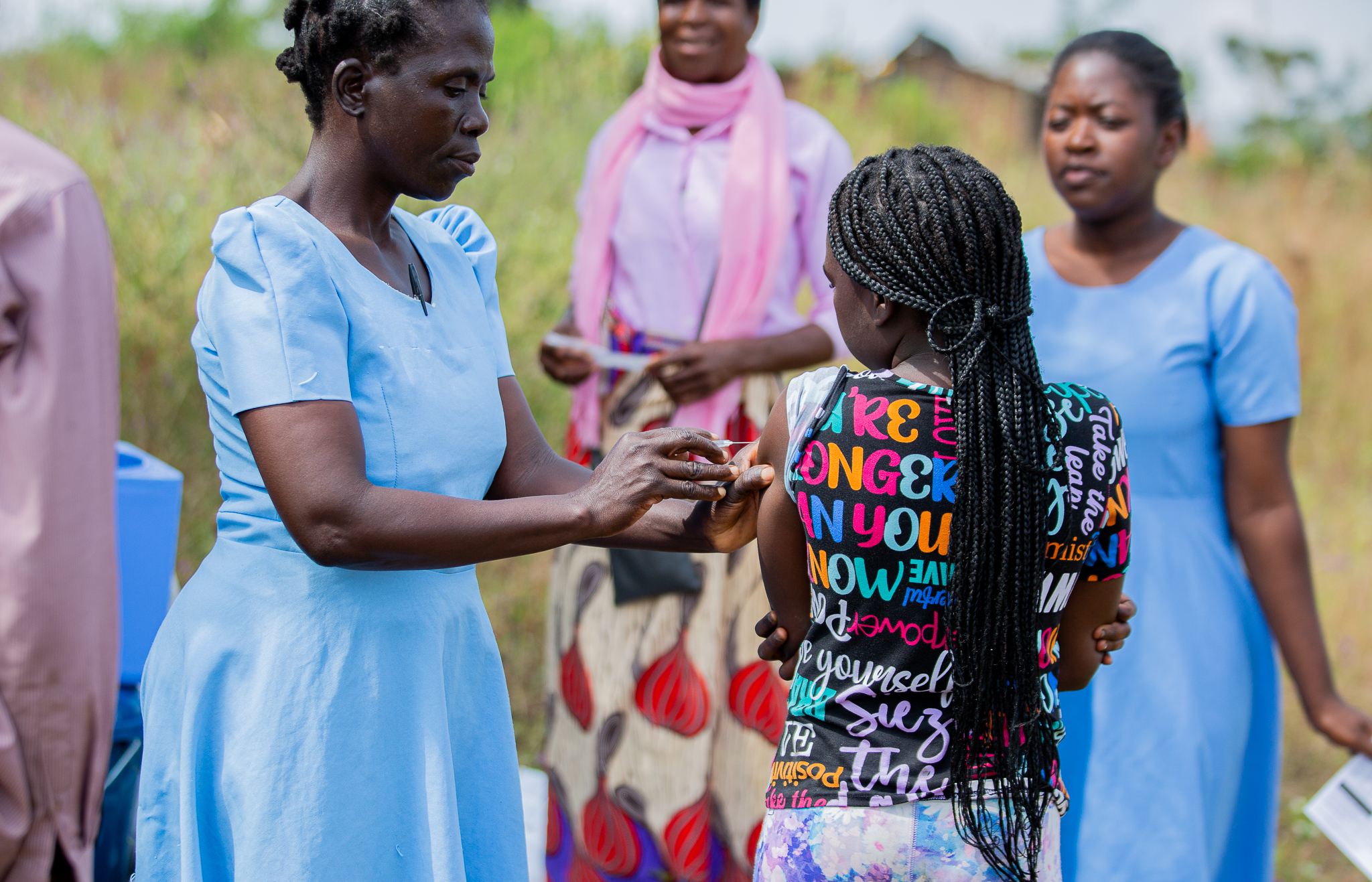Single-Dose Typhoid Vaccine Proven to Protect Children Long-Term
A single dose of the typhoid conjugate vaccine, Typbar TCV, provides lasting efficacy in preventing typhoid fever in children ages 9 months to 12 years old, according to a new study conducted by researchers at the University of Maryland School of Medicine’s (UMSOM) Center for Vaccine Development and Global Health (CVD) and led by in-country partners at the Malawi-Liverpool Wellcome Trust (MLW) Clinical Research Programme.
Results from the Phase 3 clinical study were published Jan. 25 in The Lancet.
The research team enrolled more than 28,000 healthy children in Malawi and randomly assigned about half the group to receive TCV and the other half to receive a meningococcal capsular group A conjugate (MenA) control vaccine. During the more than four years of follow-up, 24 children in the TCV group and 110 in the MenA group developed typhoid fever, which was confirmed via blood culture. That resulted in an efficacy of 78.3 percent in the TCV group, with one case of typhoid prevented for every 163 children vaccinated. TCV was effective in all age groups and over the study period — which ended in 2022 — vaccine efficacy remained strong, decreasing by only 1.3 percent per year.

Girl receives Typbar TCV vaccine for typhoid protection in study to test efficacy of typhoid conjugate vaccine.
“The newly published study supports the long-lasting impacts of a single shot of TCV, even in the youngest children, and offers hope of preventing typhoid in the most vulnerable children,” said Kathleen Neuzil, MD, MPH, CVD director, the Myron M. Levine, MD, DTPH, Professor in Vaccinology at UMSOM, and co-author of the current study. “We could not have had a better partner in this endeavor than MLW, whose long-standing excellence in typhoid research and strong surveillance infrastructure made this study possible.”
Typhoid fever causes more than 9 million illnesses and at least 110,000 deaths worldwide every year, mostly in sub-Saharan Africa and southeast Asia. It is a contagious bacterial infection that occurs from consuming contaminated food or beverages. Symptoms include nausea, fever, and abdominal pain that, if left untreated, can be deadly.
"These findings have significant implications for identification of the contribution of TCVs in the control and potential elimination of typhoid fever in endemic settings,” wrote the authors of a commentary published in The Lancet alongside the study.
In May 2023, the Malawi government launched a national rollout of TCV in children under 15 years old. Going forward, all children in Malawi will receive TCV at 9 months of age as part of the routine immunization schedule.
“The CVD’s outstanding record of generating data to accelerate public health decisions continues with this landmark study,” said UMSOM Dean Mark T. Gladwin, MD, vice president for medical affairs, University of Maryland, Baltimore, and the John Z. and Akiko K. Bowers Distinguished Professor. “The research could not come at a more critical time when Malawi and other African countries are struggling with climate change, extreme weather events, and increased urbanization patterns, which are likely to contribute to increases in enteric diseases, including typhoid.”



